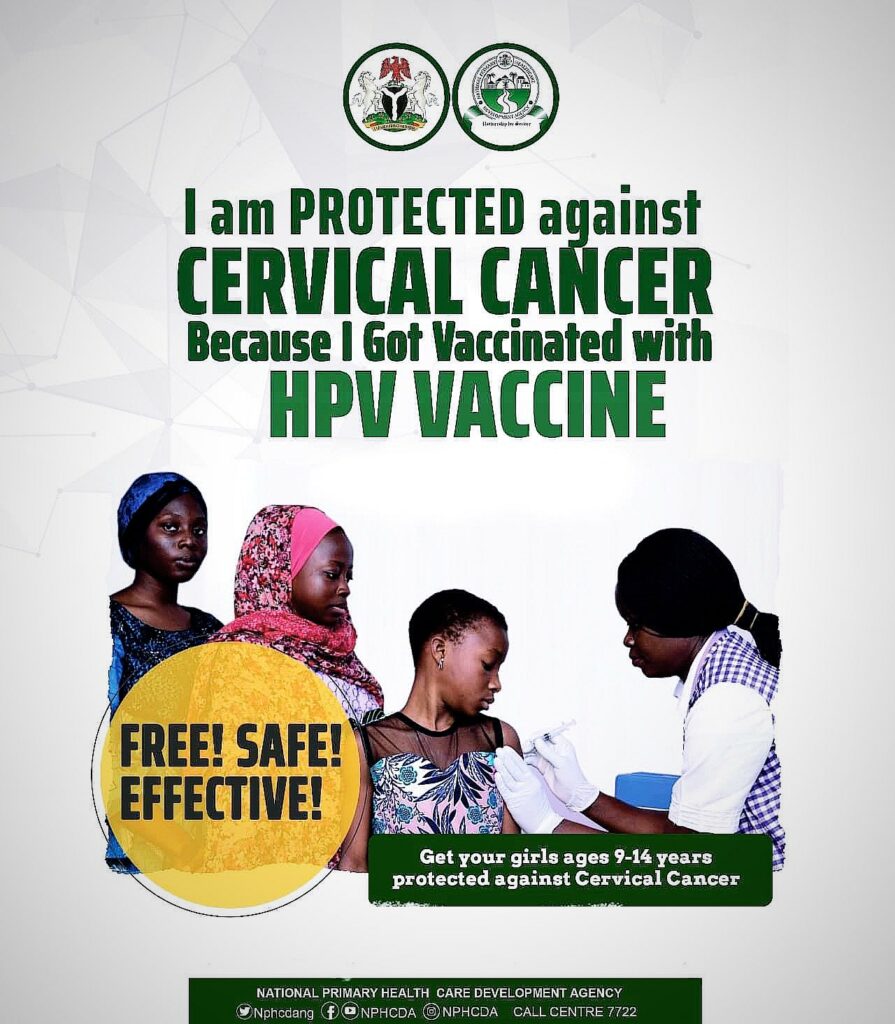By Dr. Obinna Ebirim, Senior Advocacy Officer, Niyel

ABUJA, Nigeria, 24 October 2023 -/African Media Agency (AMA)/- Funmi, a 21-year-old lady, is in a state of utter shock. Her fiancé, Yakubu, just called off their wedding ceremony scheduled to take place in three weeks. A compulsory medical examination for intending couples just revealed that Funmi has multiple growths around her genitals. Unaware that these growths could be treated, Yakubu made the difficult decision because he could not envision living with a spouse with such an ailment.
Nda Ngozi, a 65-year-old woman is leaving the hospital in tears. She had gone to complain of the persistent bone pains she has been experiencing in the last three months and was told by the doctor that her cancer has resurfaced and spread to her bones and organs. Diagnosed with cancer five years ago, she underwent a hysterectomy with the hopes that it will lead to a permanent cure. Unfortunately, despite the rounds of chemotherapy and radiotherapy that followed the surgery, she was also told that the cancer is at an advanced stage with minimal chance of survival.
The stories above illustrate cases of genital warts and cervical cancer. Both conditions are caused by the Human Papilloma Virus (HPV), preventable by the HPV vaccine. This highlights why the introduction of the HPV vaccine into the Nigerian routine immunisation schedule marks a momentous occasion, evoking feelings of relief and joy for many women. The quadrivalent vaccine being introduced protects against HPV types 6, 11, 16 and 18. Females aged 9 to 14, regardless of their socioeconomic background, can get vaccinated against HPV at no cost in public health facilities in Nigeria. The HPV vaccine protects females before but not after infection by the virus, and most sexually active individuals are likely to have been infected even though many will have no symptoms. This is why the HPV vaccine is administered at an early age, and preferably before first sexual experiences.
Genital warts, a sexually transmitted disease, often manifest as small bumps in the genital region. They can be flesh-coloured, flat, or cauliflower-like in appearance. Some warts may be too small to discern. In women, these warts tend to emerge within or around the vagina, cervix, or anus. In men, they may appear on the penis tip, anus, scrotum, thigh, or groin. The transmission of genital warts transpires during oral, vaginal, or anal intercourse with an infected partner. The HPV vaccine being introduced in Nigeria protects against the HPV types 6 and 11 which cause most genital warts.
Cervical cancer occurs in a woman’s cervix, the entrance from the vagina to the uterus or womb. HPV types 16 and 18 account for approximately 50% of severe cervical pre-cancers and the HPV vaccine being introduced in Nigeria protects against these HPV types. While most HPV infections resolve naturally without symptoms, persistent infection heightens the risk of cervical cancer. Globally, cervical cancer is the 4th most common cancer with about 604,127 women diagnosed in 2020 alone. In Nigeria, it is the 2nd most common cancer in women, and it is estimated that about 12,075 women are diagnosed of this cancer every year, resulting in 7,968 deaths.
Timely detection and effective management can render cervical cancer treatable, though delayed diagnosis and inadequate healthcare-seeking behaviours remain challenges.
Awareness is the catalyst for emotions like joy or sorrow, and it is impossible to experience these feelings about something unknown. Thus, the delight in Nigeria surrounding the HPV vaccine introduction is reserved for those aware of this new vaccine and its importance in ensuring good health and well-being. It is imperative that the decision to introduce the HPV vaccine, and awareness about the vaccine’s importance, is conveyed to neighbours and community members. Educating on the safety of HPV vaccine and encouraging females to get vaccinated at the nearest public health facility are crucial.
Niyel, one of Africa’s topmost advocacy, campaigns, and public affairs organisation, is increasing immunisation confidence in Burkina Faso, Democratic Republic of Congo and Nigeria by working with influencers in its Safe and Secure (Sain et Sur) Campaign. It recognises the impact that influencers can have on community members in fostering vaccination decision.
Niyel encourages Nigerian girls to go to the nearest health facility and find out all the necessary information they need to get vaccinated and community influencers should support in dispelling rumours and spreading the right information about HPV vaccine.
Distributed by African Media Agency on behalf of Niyel.
About Niyel
Founded in 2008, Niyel is an international advocacy and campaigning firm based in Dakar, Senegal. It works to promote public policies that are conducive to the development of all people, and to influence practices to ensure that as citizens, individuals, and communities, we understand the social, political, and cultural issues that affect our daily lives.
The post HPV Vaccine Introduced in Nigerian routine Immunisation Schedule appeared first on African Media Agency.




